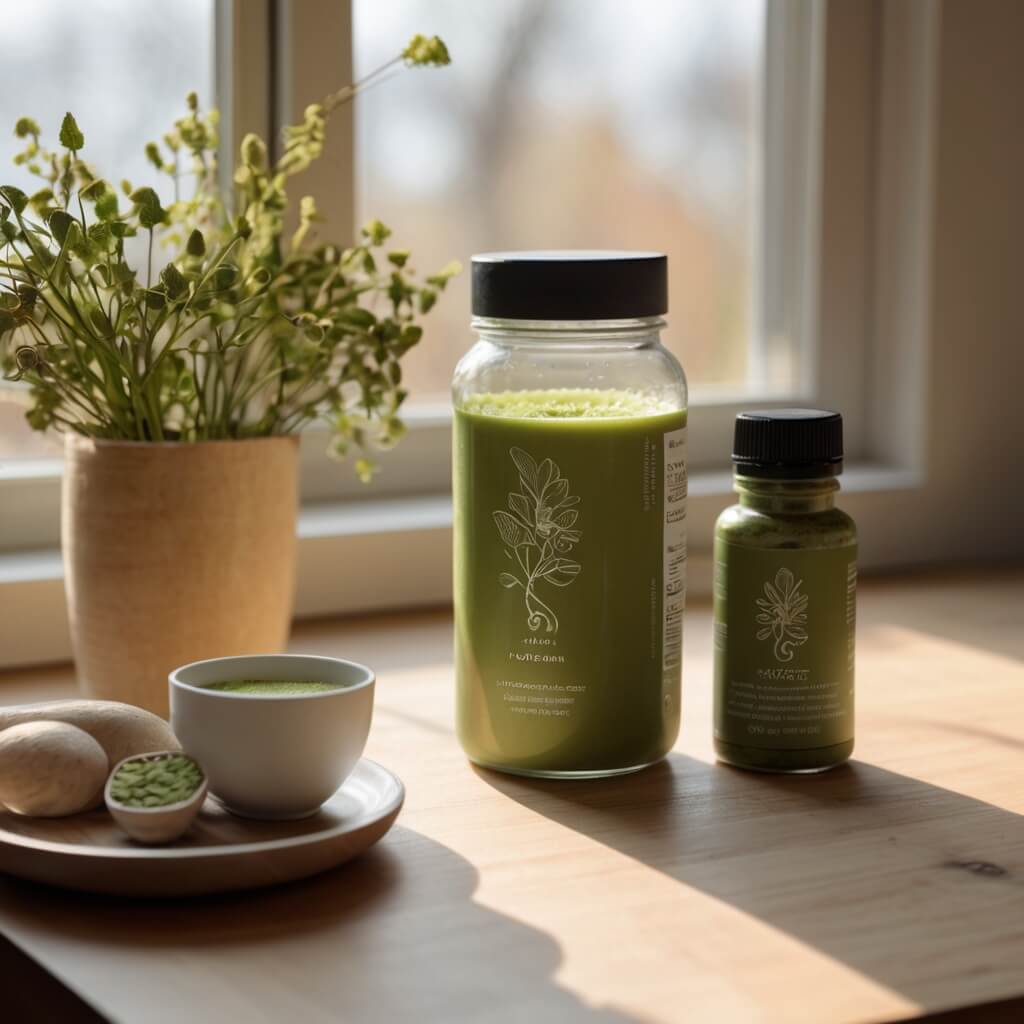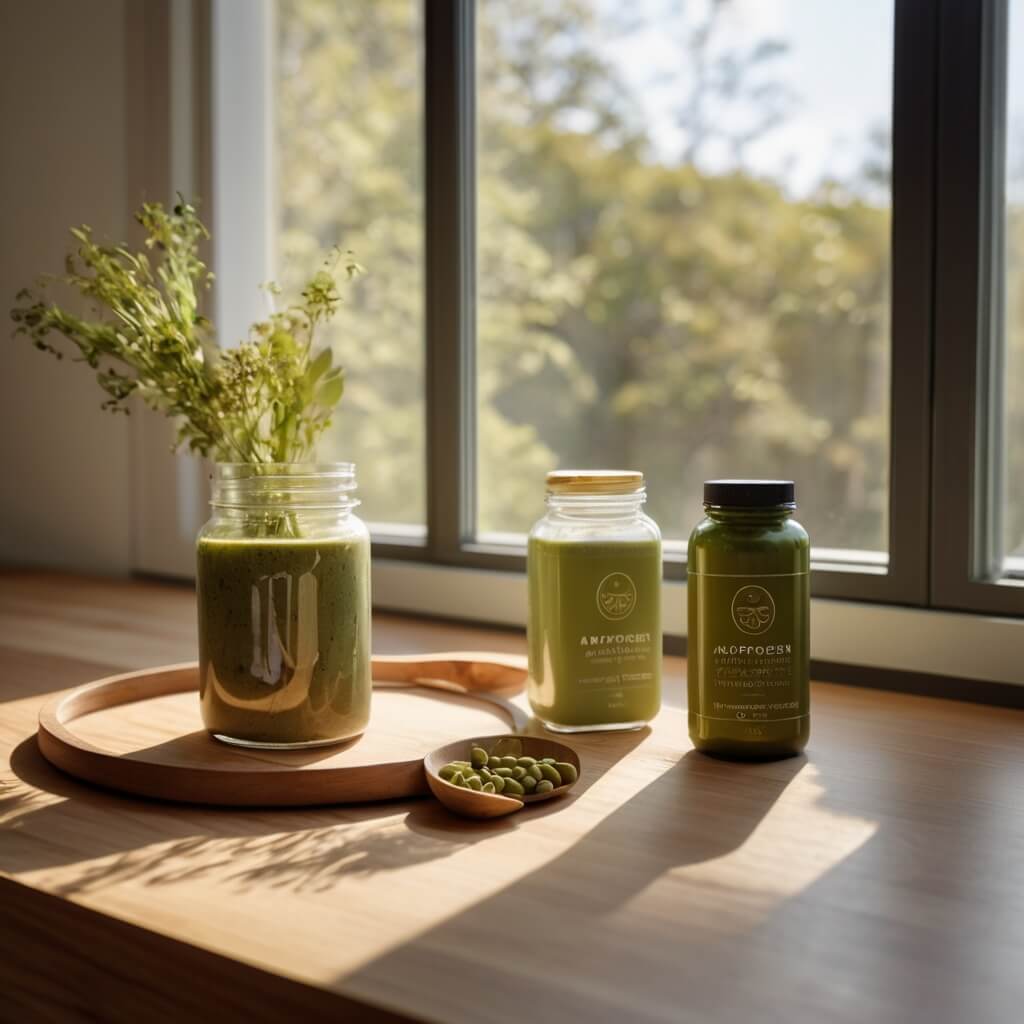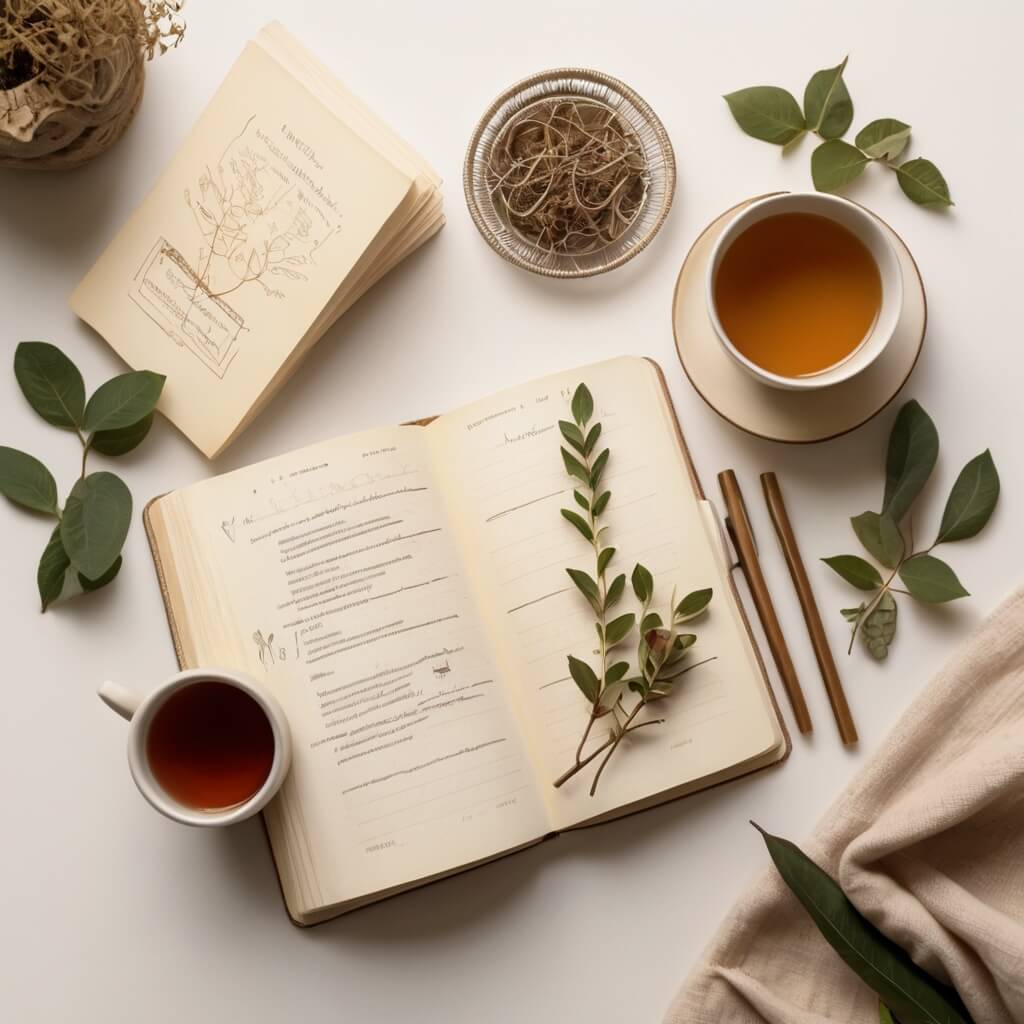Physical Address
304 North Cardinal St.
Dorchester Center, MA 02124
Physical Address
304 North Cardinal St.
Dorchester Center, MA 02124

Herbal nootropics offer a natural way to enhance focus, memory, and mental clarity—without the crash of stimulants. From Lion’s Mane to Bacopa Monnieri, explore powerful plant-based allies that support your brain and help you stay sharp, energized, and on task.
Not all nootropics are created equal—and when it comes to herbs, certain plants stand out for their proven ability to enhance attention, memory, and mental clarity. Below are some of the most researched and reliable herbal nootropics for focus, each offering unique mechanisms and benefits. Whether you’re dealing with brain fog, stress, or just want to perform at your cognitive best, these botanicals deserve a spot in your daily routine.

Lion’s Mane is a medicinal mushroom celebrated for its neuroregenerative properties. Unlike most nootropics that simply boost neurotransmitter activity, Lion’s Mane stimulates the production of nerve growth factor (NGF)—a protein vital for the growth and repair of brain cells.
Benefits:
Science Says:
Studies published in Evidence-Based Complementary and Alternative Medicine and Journal of Medicinal Food show significant improvements in cognitive function and mental clarity, especially in older adults.
Best For: Long-term memory support, learning capacity, and neuroprotection
Typical Dose: 500–1,000 mg/day of a dual-extracted supplement
An Ayurvedic herb traditionally used for boosting brain power, Bacopa Monnieri has gained scientific validation for its ability to enhance cognitive performance—especially working memory, attention span, and information processing.
Benefits:
Science Says:
A meta-analysis in The Journal of Ethnopharmacology confirms Bacopa’s positive effects on attention, cognition, and memory recall, particularly when used consistently over 8–12 weeks.
Best For: Study focus, ADHD symptom support, mental clarity
Typical Dose: 300–600 mg/day (standardized to 50% bacosides)
One of the oldest living tree species, Ginkgo Biloba is known for increasing blood flow to the brain, which helps deliver more oxygen and nutrients to support mental sharpness.
Benefits:
Science Says:
Research in Psychopharmacology and Human Psychopharmacology shows Ginkgo improves executive function and memory, particularly in older adults and individuals with ADHD-related symptoms.
Best For: Mental stamina, alertness, age-related focus decline
Typical Dose: 120–240 mg/day (standardized extract with 24% flavone glycosides)
Gotu Kola is an adaptogenic herb often overlooked in the nootropic space, yet it’s rich in triterpenoids that support cerebral circulation, brain cell repair, and reduced anxiety—a hidden gem for calm, centered focus.
Benefits:
Science Says:
Studies in the International Journal of Pharmacy and Pharmaceutical Sciences show improvements in attention, reaction time, and working memory in healthy adults.
Best For: Anxiety-induced brain fog, meditation and mindfulness support
Typical Dose: 250–500 mg/day of standardized extract
Although technically more of an adaptogen than a pure nootropic, Rhodiola Rosea plays a powerful role in mental performance—especially under stress. It supports mental stamina, motivation, and attention during burnout or fatigue.
Benefits:
Science Says:
A study in Phytomedicine found Rhodiola significantly improved mental performance and reduced fatigue after just two weeks of use.
Best For: Mental endurance, focus under stress, natural ADHD support
Typical Dose: 200–400 mg/day (standardized to 3% rosavins, 1% salidroside)
Incorporating one—or a combination—of these herbs can dramatically upgrade your cognitive toolkit. But the key isn’t just picking a herb; it’s about understanding how they work together, which we’ll cover next in the nootropic stack section

The promise of herbal nootropics for focus may sound too good to be true—but a growing body of peer-reviewed research says otherwise. While not all herbs are created equal, many of the top botanical nootropics have been studied extensively for their cognitive-enhancing effects. From randomized controlled trials to long-term cohort studies, the data show that certain herbs can genuinely improve memory, attention, and mental clarity—especially when used consistently and at effective doses.
1. Lion’s Mane Mushroom
A double-blind placebo-controlled study published in the Journal of Medicinal Food found that older adults taking Lion’s Mane extract for 16 weeks showed significantly improved cognitive function compared to placebo. Importantly, their gains were sustained with continued use and diminished once supplementation stopped—pointing to Lion’s Mane’s cumulative, neuroregenerative impact.
2. Bacopa Monnieri
In a meta-analysis of nine clinical trials, researchers concluded that Bacopa significantly improved memory recall, attention, and cognitive processing speed, especially when used for at least 8–12 weeks. The most promising effects were seen in people experiencing mild cognitive decline or chronic stress.
3. Ginkgo Biloba
Numerous studies, including those in https://onlinelibrary.wiley.com/journal/4747 show Ginkgo’s ability to increase attention span, improve working memory, and reduce mental fatigue. It’s also been studied for its potential to support brain health in early-stage dementia, although results vary based on dosage and individual response.
4. Gotu Kola
While less known in the Western supplement world, Gotu Kola has demonstrated positive results in small human trials. A study in the NIH found that Gotu Kola improved working memory and mood in middle-aged adults, especially when paired with other adaptogenic herbs.
5. Rhodiola Rosea
In multiple human trials, Rhodiola has shown measurable improvements in task performance, attention, and fatigue resistance—particularly in people under psychological stress. Study published in Multiple studies, including those published in Phytomedicine, MDPI, and PubMed, confirmed that even short-term supplementation (2–4 weeks) can enhance focus and cognitive endurance.
While herbal nootropics don’t offer the immediate “kick” of prescription stimulants or synthetic racetams, they provide a safer, more sustainable cognitive lift. Most synthetic focus aids work by forcing the release of neurotransmitters like dopamine or norepinephrine—an effect that can lead to tolerance, dependency, or a crash. In contrast, herbs work with the brain’s natural chemistry—supporting long-term neuroprotection, reducing oxidative stress, and modulating hormonal balance (like cortisol and serotonin).
It’s important to acknowledge the placebo effect in any supplement study—but many of the trials mentioned were double-blind and placebo-controlled, meaning neither participants nor researchers knew who was taking the actual herb. And in these studies, participants taking herbal nootropics consistently outperformed those on placebo in attention, memory, and mood scores.
The bottom line? Herbal nootropics for focus are not hype—they’re evidence-backed tools for those seeking better mental performance without relying on synthetic stimulation.
Designing your own herbal nootropic stack for focus means combining a few synergistic herbs that target different aspects of cognitive performance—attention, memory, mental energy, and stress resilience. The goal is not just to stimulate the brain, but to support its underlying health and function for lasting focus without burnout.
Here’s how to build a well-balanced, effective nootropic routine using science-backed botanical ingredients:
Start with a base herb known for its broad cognitive support and adaptogenic resilience. This becomes your daily go-to.
Choose one or rotate two every few months depending on your needs.
Mental fatigue and distraction often stem from elevated cortisol or chronic stress. Adding an adaptogen can balance mood, energy, and motivation.
Stacking a focus herb with an adaptogen enhances non-stimulant cognitive energy while protecting your nervous system from overload.
To round out your stack, add a circulatory booster or antioxidant-rich herb that promotes alertness and protects neurons.

| Time of Day | Herb | Dose | Purpose |
|---|---|---|---|
| Morning | Rhodiola Rosea | 300 mg | Mental stamina, stress resilience |
| Mid-Morning | Lion’s Mane | 500 mg | Focus, neuroplasticity |
| Lunch | Gotu Kola | 250 mg | Calm alertness, blood flow |
| Afternoon | Ginkgo Biloba | 120 mg | Circulation, attention |
| Evening (optional) | Bacopa Monnieri | 300 mg | Memory consolidation, anti-stress |
Tip: Pair fat-soluble herbs like Bacopa with a healthy fat source for better absorption (e.g., coconut oil or avocado).
By creating your own herbal nootropic stack for focus, you get a personalized, low-risk approach to mental performance that’s rooted in ancient wisdom and modern science. No jitters. No crashes. Just sustainable clarity—powered by plants.

In an age where constant stimulation drains our attention spans, herbal nootropics offer a grounded, sustainable solution. Backed by tradition and now increasingly supported by science, these natural compounds do more than just perk you up—they nourish the brain, support stress resilience, and help you function at your mental best over time.
Whether you’re a student, professional, creative thinker, or just someone looking to ditch the brain fog, herbs like Lion’s Mane, Bacopa Monnieri, Ginkgo Biloba, Gotu Kola, and Rhodiola Rosea can be powerful allies. Unlike synthetic stimulants, herbal nootropics work with your body’s natural rhythms—supporting neuroplasticity, reducing inflammation, and balancing neurotransmitters for long-term cognitive performance.
By building a personalized, well-rounded herbal nootropic stack for focus, you can optimize attention, improve memory, and stay sharp—without relying on caffeine or pharmaceuticals. Just be consistent, mindful of quality, and patient with the results.
Nature already designed the tools. Now it’s your move.
1: Are herbal nootropics safe for daily use? Yes, most herbal nootropics are safe for daily use when taken at recommended doses. However, effects may be cumulative and subtle. It’s wise to cycle herbs every 6–8 weeks and consult your healthcare provider if you’re on medications.
2: How long does it take to feel the effects of herbal nootropics? Some herbs like Rhodiola or Ginkgo may have mild acute effects, but most—especially Bacopa or Lion’s Mane—require consistent use over 4–12 weeks for noticeable results. They work by enhancing long-term brain function, not short-term stimulation.
3: Can I take herbal nootropics with caffeine or other supplements? Yes, many people pair herbal nootropics with caffeine, L-theanine, or other cognitive enhancers. However, always start with one herb at a time and monitor how your body reacts to avoid overstimulation or negative interactions.
4: Are herbal nootropics effective for ADHD? Some herbs like Bacopa, Rhodiola, and Gotu Kola show promise as natural ADHD support tools, particularly for attention and impulse control. While they may not replace medication, they can be part of a non-pharmaceutical strategy under professional guidance.
5: What’s the best time to take herbal nootropics? It depends on the herb. Stimulating ones like Rhodiola are best in the morning. Calming herbs like Bacopa or Gotu Kola can be taken later in the day. Always follow dosage guidelines on reputable products.